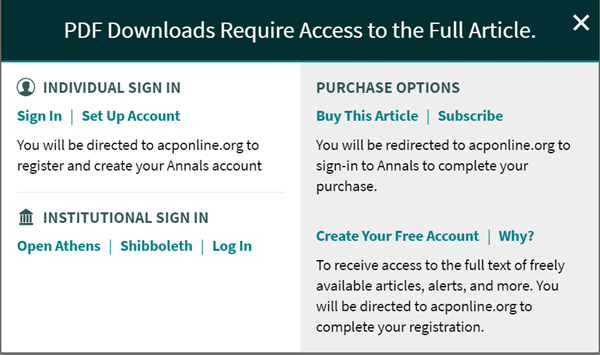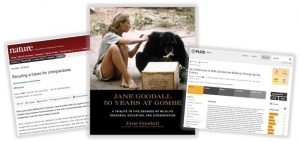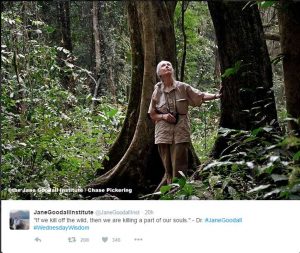2.4 Behind Paywalls
The majority of online scholarly resources are available only to paying subscribers. This means that most people across the world are shut out from access to many scholarly materials.

Libraries all over the world pay for subscriptions to resources on behalf of their communities. For example, the ISU Library subscribes to thousands of electronic journals, scholarly indexes, ebooks, and many other types of online resources. Common search engines cannot get you access to the majority of these sorts of scholarly, subscription-based resources.
Paywalls in Action
If you rely on typical web search engines for all your information needs, you probably won’t find a comprehensive set of scholarly information on your topic because a lot of it is behind a paywall. Let’s say you need to write a paper about the works of Jane Goodall, a world-renowned researcher and activist who has studied chimpanzees and animal behavior since the 1950s. She holds a PhD in ethology (animal behavior) from Cambridge University and has received numerous awards for her ground-breaking research in primatology and related conservation, environmental, and humanitarian work. She has also been named a United Nations Messenger of Peace.
Dr. Goodall has published at least 15 books on chimpanzees, animal behavior, and humanitarian/environmental topics. She has authored more than 100 scholarly articles about her research, publishing in some of the most renowned science journals. These works have been written primarily for an audience of fellow researchers.

Where do you start when looking for information for your paper on Jane Goodall’s works? If you just need basic facts and news, Google would be a great choice. However, paywalled information isn’t available to search engines, so they can’t make it accessible to you. Because much of her scholarly work lives behind paywalls, you won’t easily find her articles using Google.

When you Google Jane Goodall, you’ll find websites related to her organizations, a Wikipedia entry, her Twitter feed, photos and videos, links to buy her books, news articles, and so on.
All of this may be good information, but most of it is not peer-reviewed scholarly material.
Content found on the open web has not necessarily gone through any review process. For example, social media platforms like Twitter, Facebook, and Instagram don’t vet or fact check everything their users share or post. People can write whatever they want, regardless of truth, good judgment, or level of expertise.
